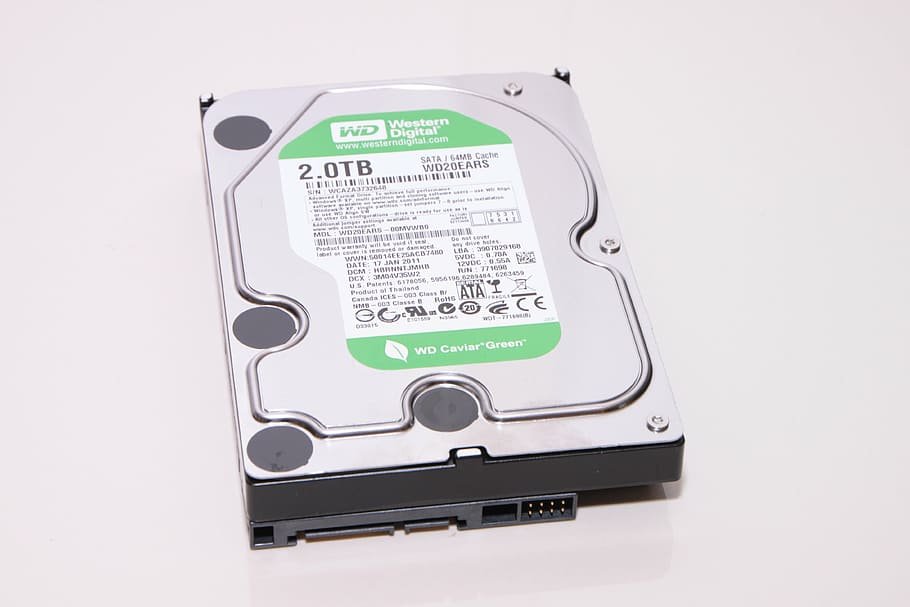SSD vs HDD: A Detailed Comparative Guide for Long-Term Storage
Introduction
Hey, need a hand figuring out the whole SSD vs HDD thing for your computer? I totally get it, choosing the right storage can be a bit of a head-scratcher. Think of me as your go-to buddy for making sense of it all. We’ll look at Solid State Drives (SSD) and Hard Disk Drives (HDD) in plain language. No techy mumbo-jumbo, just the straightforward scoop on what’s what. I’ll help you weigh the good points and the not-so-great ones, so you can decide what’s best for your storage needs. Let’s dive in and sort out which one will be your computer’s perfect match!
What is a Solid State Drive (SSD)?
SSDs represent the cutting-edge in data storage tech. They use flash memory for storing data, which means you get super quick speeds for both reading and writing data. Since they don’t have any moving parts, SSDs are really tough, use less power, and give you solid, reliable performance.
What is a Hard Disk Drive (HDD)?
Ever heard of something called Hard Disk Drives, or HDDs for short? They’re this cool old-school type of storage device that use a bunch of spinning disks and magnets to handle your data. While they might not be as fast as their flashy cousin, the SSD, they are champions at holding tons of stuff and not burning a hole in your pocket. That’s why even after all these years, you’ll see them popping up here and there


Know Everything about an HDD and an SSD
To help you understand which option is best suited for your needs, let’s compare SSDs and HDDs in various aspects:
Speed SSD vs HDD
SSDs outshine HDDs when it comes to speed. With significantly faster read and write times, SSDs ensure swift data access and seamless multitasking.
Cost SSD vs HDD
HDDs are more budget-friendly, offering higher storage capacities at a lower cost per gigabyte. SSDs, on the other hand, are relatively more expensive but provide faster performance and enhanced durability.
Durability SSD vs HDD
Due to their lack of moving parts, SSDs are more resistant to physical impact and less prone to mechanical failures. HDDs, with their spinning disks, are more susceptible to damage from drops or shocks.
Capacity SSD vs HDD
When it comes to sheer storage capacity, HDDs take the lead. They offer larger capacities at more affordable prices, making them an ideal choice for storing vast amounts of data.
Energy Efficiency SSD vs HDD
SSDs consume less power than HDDs, making them more energy-efficient and extending battery life for laptops and portable devices.
Longevity
Both Solid State Drives (SSDs) and Hard Disk Drives (HDDs) offer long-term storage solutions, but their lifespan isn’t identical. SSDs are constrained by a specific number of write cycles, but current technology allows them to endure for several years under common usage. Conversely, HDDs contain mechanical components that may deteriorate over time, potentially resulting in data loss
Noise and Heat
Unlike HDDs, SSDs operate silently because they don’t have any moving parts. HDDs can produce noise during operation due to the spinning of the disk. Additionally, SSDs generate less heat than HDDs, as they use flash memory to store data, which is more energy-efficient.
Data Recovery
Data recovery in SSDs can be quite challenging due to their architecture. Once the data is lost, it’s almost impossible to recover. On the other hand, HDDs offer better data recovery options. While it’s not guaranteed, there’s a higher chance of retrieving lost data due to the physical nature of how data is stored on the disk.
Pros and Cons of SSDs and HDDs
- SSD Pros: Faster performance, durability, lower power consumption, and silent operation.
- SSD Cons: Higher cost per gigabyte and limited storage capacities compared to HDDs.
- HDD Pros: Larger storage capacities, cost-effective, and well-suited for mass storage needs.
- HDD Cons: Slower read and write speeds, more susceptible to physical damage, and higher power consumption.
Expert Opinions
To gain further insights, it’s valuable to consider expert opinions. Leading tech professionals recommend considering factors such as specific use cases, required performance levels, and budget constraints when choosing between SSDs and HDDs. Assessing individual needs and evaluating the trade-offs will help you make an informed decision.
User Reviews
Real-life experiences of users can provide valuable perspectives. Many users have praised SSDs for their noticeable performance improvements, while others appreciate the cost-effectiveness and high storage capacities of HDDs. Hearing from those who have used these storage options can offer valuable insights into their pros and cons.
Conclusion
Let’s delve into the world of storage wizards – SSD vs HDD. Deciding between the two is akin to choosing between a nimble sports car (SSD) and a reliable SUV (HDD). If you crave a speedy, durable, and energy-efficient drive, SSDs are your ultimate choice. These nifty gadgets offer lightning-fast read-write speeds, can withstand a few bumps, and won’t drain your power reserves.
However, if you’re someone who needs ample storage space without breaking the bank, HDDs have got your back. They’re like the spacious SUV that may not have all the flashy features, but will provide you with a whole lot more storage for your budget.
So, what’s the verdict? Well, it’s all dependent on your unique requirements. Take a close look at what you desire from your storage solution, carefully weigh the pros and cons, and choose what aligns best with your needs. There’s no wrong answer here, only what’s right for you. If you want to know how to optimize your computer system read this article.
